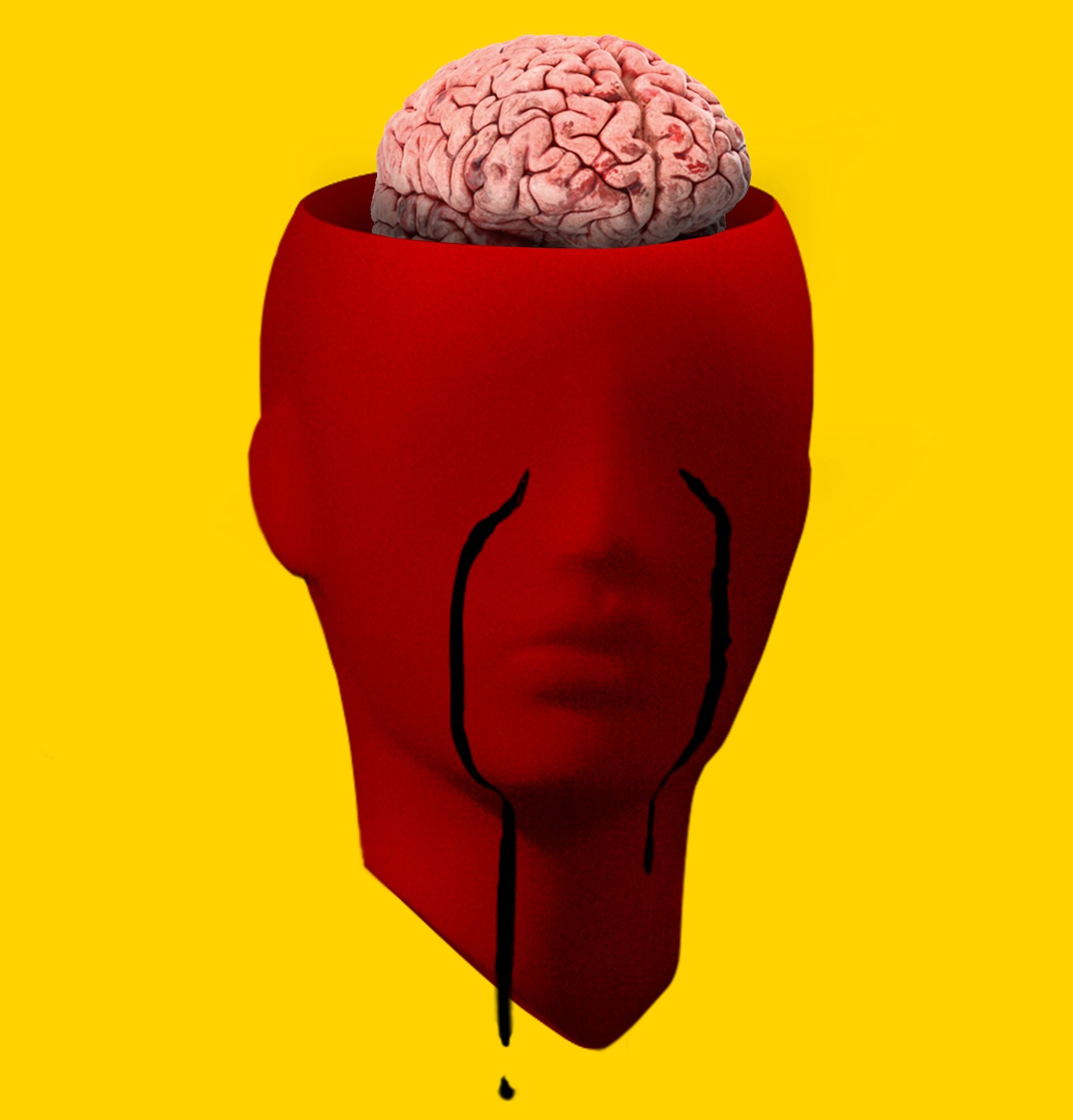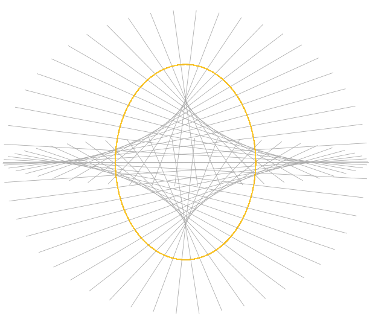8 Perspectives on Deep Inner Work –
The Path for Personal and Professional Growth
The Path for Personal and Professional Growth
Part 5 of 8: Overcoming Cultural Conditioning
November 2, 2022
This is part five of an eight-part series on deep inner work at Evolute Institute. For the other parts check out:
- Article 1: Increasing our inner freedom
- Article 2: Moving into higher mindsets
- Article 3: From disconnection to re-connection & addressing trauma
- Article 4: Healing Psychological Wounding and the Work of Grief
- Article 5: Overcoming Cultural Conditioning
- Article 6: Increasing Psychological Flexibility
- Article 7: Fostering Integration through and beyond psychedelic work
- Article 8: Acquiring Wisdom for a Good Life
The Divided Brain & our disbalance
The great psychiatrist and philosopher Ian McGilchrist[1] has done ground-breaking work at the intersection of our brain’s hemispheric organization and Western society / culture.
According to McGilchrist’s book “The Master & His Emmisary”, in which he condensed 20 years of scientific research, it is no coincidence that the brain is divided into two separate hemispheres. In fact, these hemispheres not only generate different modalities of thinking about the world, but they also generate worlds of experience and thus provide different ways of being in the world.
Having a divided brain allows humans and animals alike to specialize in different tasks. Roughly speaking, the left hemisphere specializes in paying close attention to our needs. It creates a “digital copy” of the world that helps us manipulate and navigate in it. For instance, language is an abstracted and explicit way of mapping and manipulating the world. We use abstract words to “re-present” what is not really “present”. The left hemisphere is focused on finding patterns that are known, linear, predictable, stable and classifiable into categories, so that we can accumulate and exploit our knowledge. Knowledge is abstraction, so the left hemisphere cares less about what actually happens in the world but more about what we know about it and how we can obtain greatest amount of control over it. It excels in focused attention that analyses details and breaks the world down into its individuals parts. Mechanics and utility matter most. Local, short-term and immediate results is what is seeks. So, the left hemisphere tries to maximize certainty and utility.

Photo by Priyanka Singh on Unsplash.
By the way of contrast, the right hemisphere deals with novelty and what is happening in our external environment. It is not as much interested in details as in the big picture, in the wholeness, harmony, and unity of things around us. It is specialized less in exploitation than in exploration: it is not concerned with accumulating knowledge about the world and creating models but rather with directly experiencing and deeply understanding the world. The right hemisphere can tolerate uncertainty, lives in the implicit, and sees things in their context with the full vividness of all five senses (and not in abstraction). It is more concerned with our relationship to the world and with being rather than with doing.
The Right Hemisphere – the Original Master
While both hemispheres are vital for our survival as a species, the relationship between them is not grounded on equal footing. McGilchrist marshals evidence that it is only the right hemisphere that is capable of synthesizing what both hemispheres know. In this sense, it has ontological primacy and precedence and thus deserves the designation of “The Master”.
For instance, thoughts and meaning emanate (mostly unconsciously) in the right hemisphere first and are only subsequently translated into language in the left hemisphere. Likewise, affects and emotions (right hemisphere) come before thoughts (left hemisphere).
Some studies go even further and their results have led to eruptions in debates about our free will: For example, the physiologist Benjamin Libet demonstrated in his experiments in the late 1970’s, that the motor center of the brain has already begun with the preparation of a bodily movement before one even becomes aware that one has decided to execute this movement. The time interval between motor center activation and awareness to move is about 0.35 seconds. The actual bodily movement then occurs about 0.2 seconds later.
Ironically, it is usually the left hemisphere that thinks to be in control of things, but what it does is merely to re-present what is already present in the right hemisphere.

Photo by Matthias Oberholzer on Unsplash.
Turning the faithful servant into the master
One of McGilchrist’s key findings is that in the West, we have privileged a certain part of our brain’s capacities – located in the left hemisphere – over other capacities which are rooted in the brain’s right hemisphere. Over the past three millennia, we have promoted and idolized logic, analysis and language (left hemisphere) over embodied cognition, contextual awareness and awareness of ourselves as living beings in relation (right hemisphere). The “master”, the right hemisphere, has been pushed aside, and what was supposed to be the “faithful servant”, – the left hemisphere’s powers of logic and reason – has been crowned the king.
At Evolute Institute, we subscribe to Ian McGilchrist’s view and analysis – reflected also in the highly valuable writings of Tom Morgan[2] who translates these insights into the world of investing and leadership. We have become stuck in intellectual loops, experience an epidemic of digital abstraction, separation from the natural world, and dominance of linear, reductionist thought.[3]

Photo by Ash Edmonds on Unsplash.
To make matters worse, the ruling dogma of abstracted logic that pervades most of our cultural assumptions – from education in primary school to decision-making in the business world – has made us increasingly ignore the felt reality of our bodies. More exactly speaking, the Western concept of the Enlightenment created a narrative of the superior left-brain that enforced a division (dualism) within each of us – the division between the feeling and sensing intelligence of the body (the “felt sense” according to Eugene Gendlin[4]) and the intellectual intelligence of the mind. René Descartes’ celebrated quote “cogito, ergo sum” (I think, therefore I am) has served as the tacit intellectual blueprint for our deepest cultural conditionings. Descartes viewed people as mere machines and mistrusted his senses to prevent “madness”.
All the more so, the fact that we as a society have collectively endorsed the left-brain hemisphere over the right has erected an implicit hierarchy: idea over feeling, head over body, doing over being, mind over matter, human over nature, and male over female. By being increasingly “caught in the prison of our craniums”[5] , we find it harder and harder to connect with the world around us. As we relate to our bodies, so we relate to the world. Instead of truly joining and experiencing the living world through an embodied sensitivity, we end up solely analyzing it, thinking about it, evaluating it in abstract forms. Our rationalistic, technocratic and materialisticway of relating to the world has severe consequences: endemic loneliness, a profound sense of separation, loss of meaning and orientation in life.

Photo by Gaspar Uhas on Unsplash.
Rebalancing our two hemispheres
Ironically, we do not recognize that what holds us back are the very assumptions that we have accepted as the normal givens of our world. We are looking hard for new ideas and concepts that will solve our existential distress. We are trying to think ourselves out of our plight. Yet, as Philip Shepherd brilliantly points out, “…ideas, however well-meaning, tend to feed and reinforce the dominant head; even when they moderate its tyranny, they strengthen its right to rule.”
That means, if we want to thrive holistically again, we need to go beyond mere ideas: we need to re-balance our hemispheric powers. This requires restoring the right hemisphere’s rightful place as the “master”, with logic, analytical reasoning and language as its useful tools, to make the left hemisphere the faithful servant of the whole system again. Equally, this will reconfigure our relationship to our body so that we can finally feel again the wholeness of ourselves in the world we belong to.
A new embodied mindset for leaders is needed that bridges and balances the world of the two hemispheres and brings our cultures in organizations and in our societies back into alignment. This is what the old Taoist Masters already intuited – we need to learn how to dance with the system and co-creatively evolve with it. And then we might feel not only that our lives are meaningful and connected but we might experience the joy of being fully alive again.

Photo by Hu Chen on Unsplash.
Rekindling the sense of being alive
“People say that what we’re all seeking is a meaning for life. I don’t think that’s what we’re really seeking. I think that what we’re seeking is an experience of being alive.”
- Joseph Campbell.
In a nutshell, this is where we support our retreat program participants in: deeply connecting to self and others and bringing their newfound wisdom to the world. The required steps are an overcoming of our cultural conditioning, a re-balancing of the hemispheres or “ways of being in the world”, and a re-connection to our original essence of vitality. All steps that can be facilitated with the conscious use of legal psychedelics (psilocybin-containing truffles) in a safe and supported setting.
The question that we can all ask ourselves periodically is: What is my underlying conditioning that keeps me from flourishing?
In any case, as we have pointed out, ideas are not enough to overcome our hidden layers of conditioning. We need to wholeheartedly dive into the felt experience of it. The psychedelic retreat program EvoLEAD offers a space for such deep-dives and for a re-alignment between the hemispheres as well as between our head, our heart, and our body.
In the next article we will look into the 6th perspective on deep inner work – increasing our psychological flexibility:
- Article 6: Increasing Psychological Flexibility
In case you liked what you read and haven’t done so already: check out the previous articles of this series:

Photo by Linus Nylund on Unsplash.
Christopher Kabakis
Contributing Authors
Dmitrij Achelrod PhD
Christopher Kabakis
Contributing Authors
Dmitrij Achelrod PhD
Subscribe to the insights newsletter
At most, once every 2 weeks.


Images
Article Cover: Photo by David Matos on Unsplash.
References:
[1] McGilchrist, Ian (2019): The Master and His Emissary: The Divided Brain and the Making of the Western World. Yale University Press; New Expanded Edition.
[2] Tom Morgan (KCP Group) (May 14, 2021): Four Insights From “The Master and His Emissary.” https://thekcpgroup.com/insights/four-insights-from-the-master-and-his-emissary.
[3] E.g. here https://thekcpgroup.com/insights/the-attention-span-the-view-from-orbit or here https://thekcpgroup.com/insights/the-attention-span-be-the-butterfly.
[4] Gendlin, Eugene (2003): Focusing: How To Gain Direct Access To Your Body’s Knowledge. Rider.
[5] Shepherd, Philip (2010): New Self, New World: Recovering Our Senses in the Twenty-First Century. North Atlantic Books; Original Edition.
